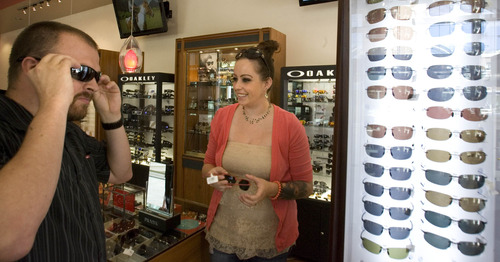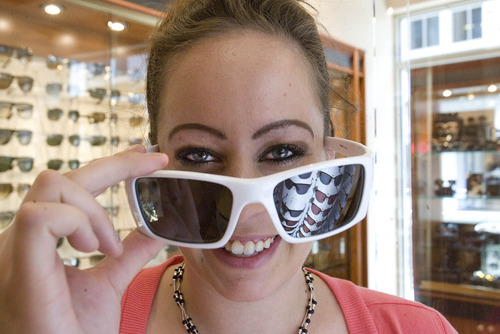This is an archived article that was published on sltrib.com in 2013, and information in the article may be outdated. It is provided only for personal research purposes and may not be reprinted.
The confidence of Utahns in the economy cooled slightly in July on increasing anxiety about the effect of rising interest rates on their borrowing capacity.
Zions Bank on Tuesday said its Consumer Attitude Index fell to 85.5 from 87.9 but still remained almost 10 points above where it was in July 2012.
Nationally, consumer confidence dipped to 80.3 in July, according to the Conference Board, a new York-based private research group. That's down from a reading of 82.1 in June, which was revised slightly higher and the best reading since January 2008. Both the Utah and U.S. figures are still below the 90 reading that indicates a healthy economy.
Utahns' attitudes have risen more or less steadily since the start of this year as people get increasingly comfortable with the confidence of many economists that the state's economy is putting the Great Recession behind it.
"We are slowly but consistently improving across myriad economic fundamentals," said Randy Shumway, CEO of The Cicero Group, which prepares the index for Zions.
"Unemployment, we are at 4.7 percent. That's almost 3 percentage points below the national average. Home sales are up 10 percent, month over month [and] 9 percent over the year. Foreclosures are down 47 percent, year over year, and consumer spending has steadily increased," Shumway said.
Still, Utahns are becoming antsy over the prospect of higher interest rates. In May, only about half of the people surveyed by Cicero thought rates would be higher in 12 months. The figure grew to 63 percent in June, and reached 76 percent in July. Their anxiety seems justified. The price of loans, particularly mortgages, has increased sharply since May. Fixed 30-year mortgage rates are up almost 1 percentage point .
And while consumer spending is rising, some Utahns are cutting back on expensive luxury purchases, said Leah Thomson, who manages Bauer's Fashion Optical in City Creek Center.
"What we've noticed here is they've kind of changed from higher-end to a more price conscious consumer. They want more value for their money," Thomson said. "Instead of buying $300 to $400 Gucci or Bulgari [sunglasses], they are going for Ray-Ban or Police, which are in the $150-$200 price range."
Consumers' confidence in the economy is watched closely because their spending accounts for about 70 percent of U.S. economic activity. It surged in June to a 5½-year high, coinciding with a stronger job market.
Employers added 195,000 jobs in June and many more in April and May than first reported. That brought the monthly job growth up to an average of 202,000 in the first six months of 2013, up from 180,000 a month in the final half of 2012.
"Overall, indications are that the economy is strengthening and may even gain some momentum in the months ahead," said Lynn Franco, a Conference Board economist.
The government releases the July employment report on Friday. Economists forecast that employers added 183,000 jobs, and the unemployment fell to 7.5 percent from 7.6 percent in June.
Twitter: @sltribpaul





